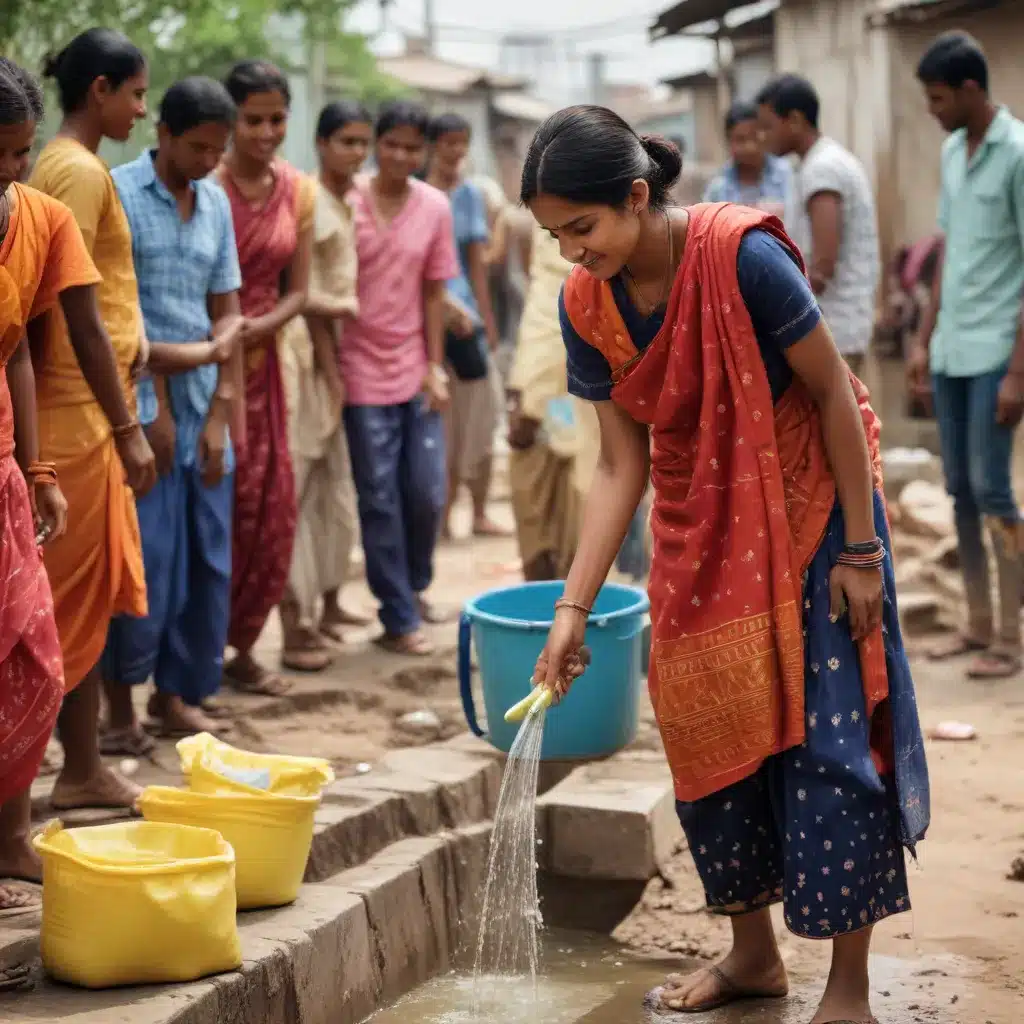
The Critical Role of Frontline WASH Workers in Bridging Service Gaps
Across the rapidly growing cities of the global South, frontline water, sanitation, and hygiene (WASH) workers play a vital yet often overlooked role in bridging the urban services divide. These essential workers, including community health volunteers, sanitation workers, and WASH program staff, serve as the critical link between municipal authorities and the communities they are tasked with serving – particularly in the informal settlements where a majority of urban residents in Hyderabad and other cities reside.
However, frontline WASH workers frequently face a range of challenges that hinder their ability to effectively deliver services and engage with marginalized communities. Inadequate training, limited resources, lack of formal employment status, and poor recognition of their contributions all undermine the capacity of these workers to fulfill their vital functions. Addressing these constraints is crucial for enhancing equitable access to WASH services and fostering meaningful community participation in Hyderabad’s informal settlements.
Investing in the Capacity of Frontline WASH Workers
To strengthen the impact of frontline WASH workers, a multi-pronged approach is needed that focuses on three key areas:
-
Skills Development and Knowledge Transfer: Providing comprehensive training programs to build the technical and interpersonal skills of frontline WASH workers is essential. These programs should cover topics such as WASH infrastructure operation and maintenance, hygiene promotion, community mobilization techniques, and conflict resolution. Hands-on demonstrations, peer-to-peer learning, and regular refresher courses can help frontline workers continuously enhance their capabilities.
-
Enhancing Working Conditions and Social Protection: Ensuring decent working conditions, fair remuneration, and social protection measures for frontline WASH workers is critical for their wellbeing and performance. This includes providing appropriate personal protective equipment, access to healthcare, and pathways for career advancement. Formalizing employment status and strengthening labor rights can help elevate the standing of these essential workers within their communities.
-
Fostering Multi-Stakeholder Collaboration: Facilitating strong partnerships between frontline WASH workers, municipal authorities, civil society organizations, and community leaders can significantly improve service delivery and community engagement. These collaborative efforts should focus on co-creating solutions, sharing knowledge, and jointly monitoring and evaluating WASH programs to ensure they are responsive to local needs.
Hyderabad’s Frontline WASH Workers in Action
Hyderabad, the capital city of Telangana state in southern India, exemplifies both the challenges and the opportunities in leveraging frontline WASH workers for more equitable and sustainable service provision. With a population of over 10 million, Hyderabad is home to a vast network of informal settlements that lack access to basic WASH infrastructure and services.
In recent years, the Greater Hyderabad Municipal Corporation (GHMC) has made concerted efforts to empower its frontline WASH workforce and strengthen their linkages with local communities. Some of the key initiatives include:
Comprehensive Training Programs for Frontline WASH Workers
The GHMC, in partnership with the Mahila Housing SEWA Trust (MHT), has developed robust training modules to enhance the skills of its community sanitation workers, known as “Swachh Mitras.” These programs cover technical aspects of sanitation infrastructure maintenance, as well as effective communication and community mobilization strategies. Regular hands-on demonstrations and refresher courses ensure that Swachh Mitras can confidently troubleshoot issues and engage residents in improving local sanitation conditions.
Formalizing Employment and Strengthening Social Protection
The GHMC has taken steps to formalize the employment status of its frontline WASH workers, providing them with official contracts, identity cards, and access to social security benefits such as health insurance and pension schemes. This has helped to elevate the standing of these essential workers within the community and fostered a greater sense of ownership and commitment to their roles.
Partnerships for Community-Driven WASH Initiatives
The GHMC has forged productive partnerships with local non-governmental organizations (NGOs) and community-based groups to amplify the reach and impact of its frontline WASH workforce. For instance, the corporation collaborates with the Indian Institute for Human Settlements (IIHS) and the Center for Study of Science, Technology and Policy (CSTEP) to implement community-driven waste management and sanitation improvement projects in informal settlements. Swachh Mitras work closely with these partners to facilitate resident participation, gather feedback, and monitor service delivery.
Recognizing Frontline WASH Workers as Change Agents
The GHMC has made concerted efforts to publicly acknowledge the vital contributions of its frontline WASH workers, particularly during the COVID-19 pandemic when their role in maintaining essential services was amplified. The corporation has organized award ceremonies, media campaigns, and other forms of recognition to elevate the status of these workers and inspire them to continue serving as catalysts for community-level change.
Scaling Up Innovations and Lessons Learned
The initiatives undertaken by the GHMC in Hyderabad provide valuable insights that can inform similar efforts to strengthen frontline WASH capacities in other rapidly growing cities across the global South. Key lessons include:
-
Comprehensive Training and Skill-Building: Investing in the continuous development of frontline WASH workers’ technical and interpersonal skills is crucial for enhancing service delivery and community engagement.
-
Formalizing Employment and Improving Working Conditions: Providing frontline WASH workers with decent employment terms, social protection, and career advancement opportunities can boost their morale, productivity, and standing within the community.
-
Fostering Multi-Stakeholder Partnerships: Collaborating with civil society organizations, community groups, and other key stakeholders can amplify the reach and impact of frontline WASH workers, while also ensuring greater responsiveness to local needs.
-
Recognizing Frontline WASH Workers as Change Agents: Publicly acknowledging the vital contributions of frontline WASH workers and elevating their status can inspire them to become more effective advocates and catalysts for community-driven improvements.
As cities like Hyderabad continue to grapple with the challenge of providing equitable WASH services, especially in informal settlements, empowering the frontline WASH workforce will be crucial for bridging the urban services divide and fostering sustainable, inclusive development. By investing in these essential workers and amplifying their roles, municipal authorities can unlock the transformative potential of community-level engagement and pave the way for more resilient, prosperous, and livable cities.

